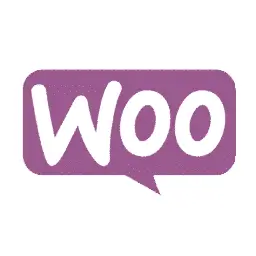Spanish-English-Hebrew Wordpress translation
We set up your WordPress website and configure it to translate from English to Hebrew or from Hebrew to English. Translate your WordPress and start selling your products also in Israel.

Ever thought of translating your WordPress corporate site into Hebrew?
WordPress is the most widely used Content Management System (CMS) on the Internet. More than 60% of websites in English or Hebrew have been developed using this popular CMS.
In a globalized world, translating your WordPress from English into Hebrew makes it possible to expand your market niche and sell your products and services in other interesting countries like Israel.
Our native Hebrew-speaking translators will faithfully translate your most valued content into Hebrew. They will employ the right words and phrasing to capture the attention of your potential customers located in and in other countries where Hebrew is widely used.
Once your WordPress is linked to our translation management platform, we will import every piece of content and text string. All translations will be assigned and reviewed by expert Spanish-English-Hebrew translators. All pieces of information are taken into account: pages, posts, custom fields and custom post types, taxonomies (like categories and tags), slugs, menus, widgets and meta-tags to help you rank your site properly.

Multilingual plugin available in Hebrew
By default, WordPress is not designed to be multilingual. WPML is a plugin developed by OntheGoSystems that allows you to translate you WordPress site into Hebrew. You can also choose the local dialect of Hebrew that is spoken in Israel. That way, you will be addressing Hebrews in proper Hebrew and encourage them to buy your products and services.
Our English-Spanish-Hebrew translation service for WordPress includes a lifetime license and updates for the WPML plugin. In order to calculate the volume of words to be translated, we can install this multilingual plugin and easily export the WordPress content into our translation management platform. You will only be paying a word rate.
Translation memories are multilingual databases where English / Spanish / Hebrew sentences are paired and saved for future use. This is a significant cost saving, since the same sentence is translated and paid for one single time.
Translating your WordPress website into Hebrew will rank your pages in Google and Yahoo. With a good SEO strategy Hebrews will find you and trust your brand more. Translating for SEO purposes is also called International SEO. In the case of WordPress, we specially recommend the Yoast SEO plugin, which is compatible with WPML and allows for the translation of meta-tags (title, description and keywords) from English into Hebrew or vice versa.

Woocommerce: get your online shop easily translated into Hebrew or from Hebrew
Woocommerce is a comprehensive set of plugins for creating your online shop. Why not translating your shop into Hebrew? Choose your best selling services and products: now you can translate all your product names, description and the purchase process into Hebrew or into any language you choose. Woocommerce is fully compatible with both WPML and Yoast SEO, so if you invest in translating into Hebrew you can be sure that your website will not have any incompatibility issues.
Do not limit your market share to English-speaking web users. a professional translation into Hebrew will pay off in the long run and will help your company build trust in countries such as Israel…
Who speaks Hebrew?
Hebrew (עִבְרִית in Hebrew) is spoken by about 5 million people in Israel. This figure includes both native speakers and second language speakers with different levels of fluency.
More language services in Hebrew:
Get your WordPress in Hebrew or into any of these languages:
Contact us now and translate your content into Hebrew
Can we help?
Where does the Hebrew language come from?
Hebrew belongs to the group of Canaanite Semitic languages. It was the language of the first Jews, but from 586 BC it began to be replaced by Aramaic. Around 200 A.D. the use of Hebrew as an everyday language ceased to exist, but it was still used for literary and religious functions, as well as as a lingua franca among Jews in different countries.
In the mid-19th century, the first efforts were made to revive Hebrew as an everyday language. The person who was most involved was Eliezer Ben Yehuda (1858-1922). He was the first to use exclusively Hebrew at home, and promoted its use in schools as well.
Today, Hebrew is spoken by about 5 million people, mainly in Israel, where it is an official language along with Arabic. In total, 2 million people speak Hebrew in Argentina, Australia, Brazil, Canada, France, Germany, the West Bank and Gaza, Panama, the United Kingdom and the United States.